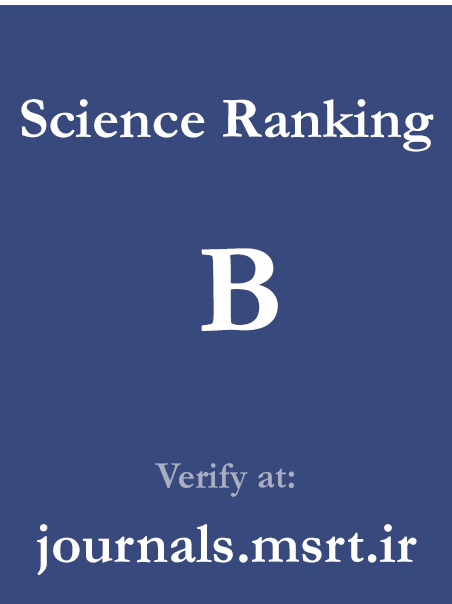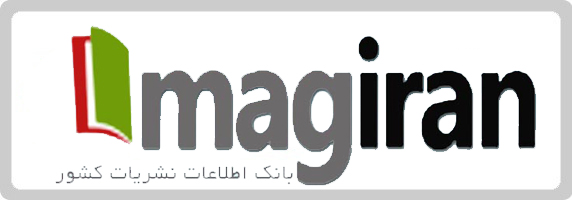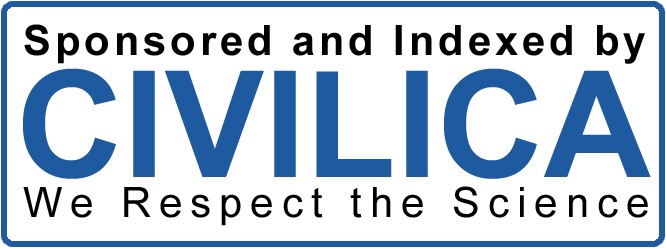Examining and Testing a Model for Attracting Knowledge Workers Based on Professional Competencies (Case Study: Governmental Organizations in Iraq)
Keywords:
Knowledge workers, Professional competencies, Governmental organizationsAbstract
Knowledge workers possess advanced education, high technical literacy, and elevated cognitive abilities, including abstract reasoning. They also demonstrate the capacity to observe, integrate, and interpret data and information while generating and transferring new perspectives and insights that support improved decision-making and more appropriate organizational solutions. The present study aims to examine and test a model for attracting knowledge workers based on professional competencies in the context of governmental organizations in Iraq. Accordingly, the research is applied in purpose, quantitative in data type, and descriptive–correlational in method. The statistical population consists of managers and officials from various governmental organizations. Due to the unlimited size of the population, Cochran’s formula for an infinite population was applied, resulting in a sample size of 384 individuals. The research instrument was a questionnaire, and data analysis was conducted using structural equation modeling (SEM) in PLS software. The results indicate that all hypothesized relationships were confirmed (t-value > 1.96). The model fit index reached 0.63, indicating a strong model fit. Furthermore, the factor loadings for all components exceeded 0.40, confirming the acceptability of the confirmatory factor analysis.
Downloads
References
1. Muzam J. The challenges of modern economy on the competencies of knowledge workers. Journal of the Knowledge Economy. 2023;14(2):1635-71. doi: 10.1007/s13132-022-00979-y.
2. Duxbury L, Ormsbee F. Does studying the past help us understand the future? an examination of the expectations of Gen X knowledge workers. The International Journal of Human Resource Management. 2020;31:935-63. doi: 10.1080/09585192.2017.1393835.
3. Bussin M, Brigman N. Evaluation of remuneration preferences of knowledge workers. SA Journal of Human Resource Management. 2019. doi: 10.4102/SAJHRM.V17I0.1075.
4. Roueen F, Mohibi S, Golrad P. Identifying the Factors Influencing the Recruitment and Supply of Professional Human Resources in Education: A Case Study of Hormozgan Province. Journal of New Approaches in Educational Management. 2023;14(5):1-12.
5. Hoque M, Tshutsha N. Exploring Factors Affecting the Attraction and Retention of Academic Employees at the Durban University of Technology. International Journal of Service Science, Management, Engineering, and Technology. 2022;13:1-12. doi: 10.4018/IJSSMET.290332.
6. Arstorp AT, Olofsson AD, Lindberg JO. Professional digital competence in teacher education-where are we, where are we headed and how to get there? Teachers and Teaching. 2024;30(4):395-9. doi: 10.1080/13540602.2024.2379845.
7. Norman E, Masruri A, Wahid J, Hasbian Y. Managing Teacher Competence Improvement through Leadership, Professional Development, and Digital Innovation: A Systematic Literature Review. Journal of Educational Management Research. 2025;4(6):2135-70.
8. Rama S, Sarada S. Role of self-esteem and self-efficacy on competence-A conceptual framework. Journal of Humanities and Social Science. 2017;22(2):33-9. doi: 10.9790/0837-2202053339.
9. Pradita DN, Simanjuntak E, Ritonga IL, Lubis SPS. Recruitment System for Human Resources in the Medical Records Units a Private Hospital's Medan City in 2024. Procedia of Engineering and Life Science2024. p. 92-6.
10. Turlybekov B, Seidaliyeva G, Abiev B, Kazyhankyzy L. Development of professional-pedagogical competence in future English language teachers. International Journal of Innovative Research and Scientific Studies2024. p. 1009-16.
11. Nuraliyeva P, Tursunnazorova E, Otakulova D. Methods of developing professional competence in students through the use of digital technologies. AIP Conference Proceedings2024. p. 030040.
12. Bazaeva F, Magomeddibirova Z, Uzdenova A. Formation of professional competence among students in a pedagogical university. SHS Web of Conferences2024. p. 06008.
13. Maspupah S, Ardiwinata JS, Shantini Y. Enhancing Non-Vocational Teacher Professional Development through an Andragogical Internship Model. AL-ISHLAH: Jurnal Pendidikan. 2025;17(1):870-7. doi: 10.35445/alishlah.v17i1.7227.
14. Tavárez de Henríquez JC, Domínguez Valerio CM. Satisfaction with the Work Done in University Employees: A Study from a Developing Country. Administrative Sciences. 2023;13:Article 221. doi: 10.3390/admsci13100221.
15. Cob C, Zakaria UK, Wahab M, Baistaman J, Nur Zahirah S, Osman N. Factors Influencing Job Performance among Academic Staff in Malaysian Public University. Information Management and Business Review. 2024;16:31-42. doi: 10.22610/imbr.v16i1(I).3630.
16. Geron T. “Creating Justice in My Practice”: Supporting Teachers’ Values Through Professional Development in Educational Ethics. Teachers College Record. 2025;127(3):40-66. doi: 10.1177/01614681251336676.
17. Fattah Ali Begi P, Abtahi MA-S, Maqami HR, Moradi R. Examining the impact of in-service training on teacher professional development: An analysis of components, contextual factors, and models. Teacher Professional Development. 2025;10(1):153-82.
18. Khodaverdifar M, Akbari T. Examining the Factors Affecting Recruitment and Attraction of Human Resources in Iran Using a Meta-Synthesis Approach. Proceedings of the Second National Conference on the School of the Future2020. p. 1-16.
19. Shahreki Sanavi H, Fatemi SZ. Prioritizing the Factors Influencing the Attraction and Retention of Professional Human Resources in Outsourcing Electronic Service-Based Businesses Using the AHP Approach. Proceedings of the Second International Conference on Management, Business, Economics, and Accounting2023. p. 1-11.
20. Baldan Babayiğit B, Sever D, ÇAm AktaŞ B, KİP KayabaŞ B, ŞEnel EA, GÜVen M. Professional Development for Multicultural Education: Lessons from a Blended In-Service Teacher Training Programme. TEACHING AND TEACHER EDUCATION. 2025;165. doi: 10.1016/j.tate.2025.105151.
21. Baavardi A. A Study on the Factors Influencing the Attraction and Utilization of Talented Human Resources in Organizations. Proceedings of the Fifth International Conference on Contemporary Studies in Humanities, Educational Sciences, Law, and Social Studies2024. p. 1-7.
22. Ghorejili S. A model for the personal development of primary school teachers in Alborz Province. Teacher Professional Development. 2025;10(1):1-26.
23. Taqavi Deilami Pour M, Pali S. The effect of psychological empowerment on teachers' job performance with the mediating role of professional identity and psychological well-being. Personal Development and Organizational Transformation. 2025;3(2):1-16. doi: 10.61838/kman.jpdot.152.
24. Ramezani M, Mirkazemi SA. Professional Development Strategies with an Emphasis on the Innovative Work Behavior of Physical Education Teachers in South Khorasan Province. Qualitative Research in Behavioral Sciences (QRBS). 2025;3(2):37-56. doi: 10.22077/qrbs.2025.8364.1067.
25. Zhao J. An Investigation Into the Professional Development of Foreign Language Teachers From Science and Engineering and Colleges in the Background of “New Liberal Arts”. 2025;2(2):142-9. doi: 10.62517/jhet.202515222.
Downloads
Published
Submitted
Revised
Accepted
Issue
Section
License
Copyright (c) 2025 Faten Abed Mohsin AlRashid (Author); Zohreh Aghababaei Dehaghani; Abdulridha Faraj Badrawi Alkhammas, Mohsen Shariati Kamalabadi (Author)

This work is licensed under a Creative Commons Attribution-NonCommercial 4.0 International License.




